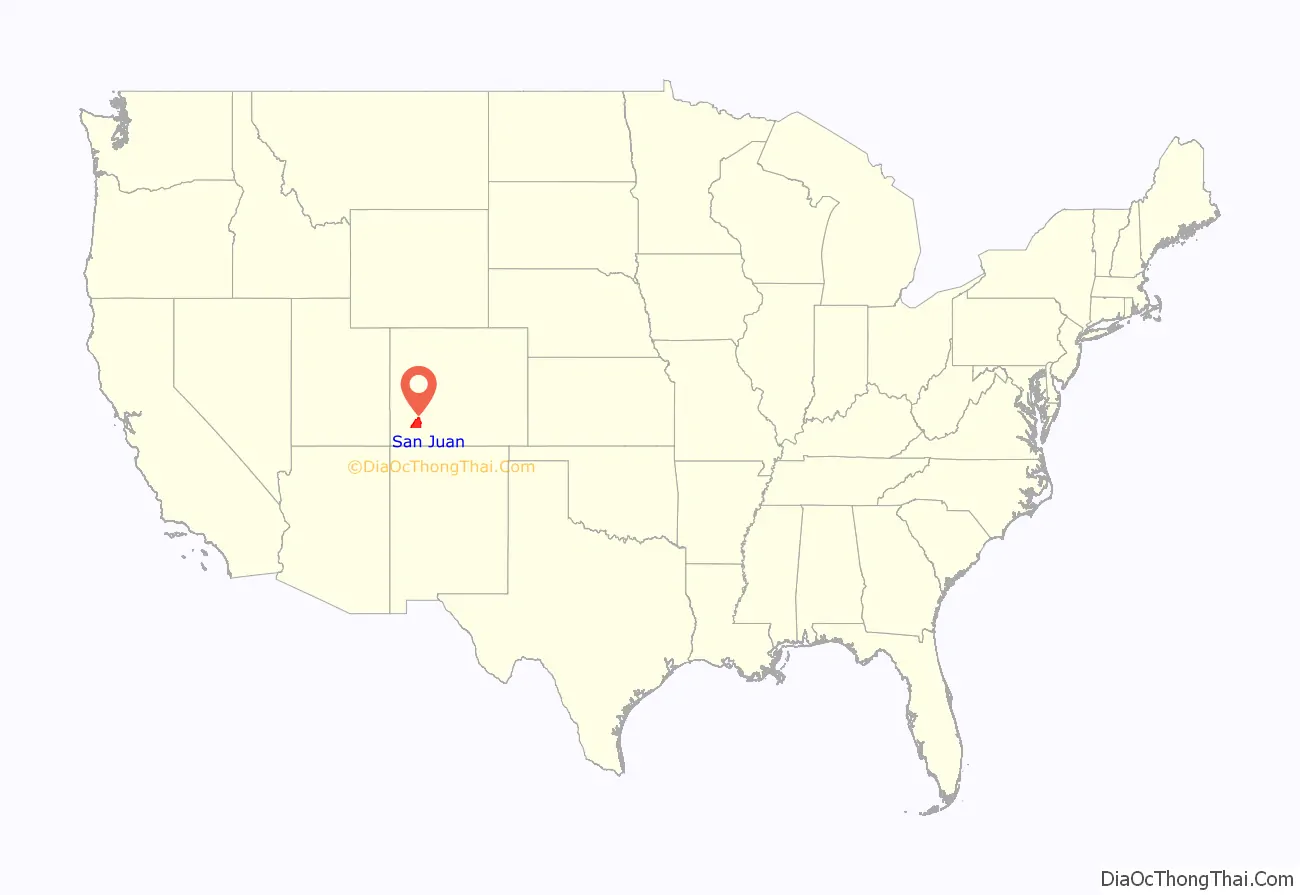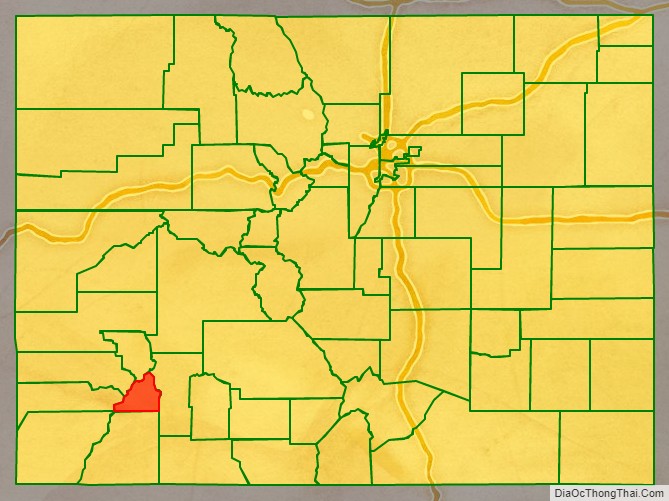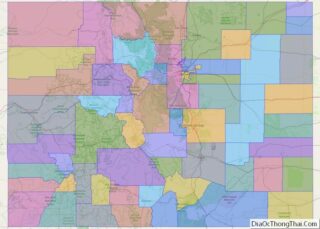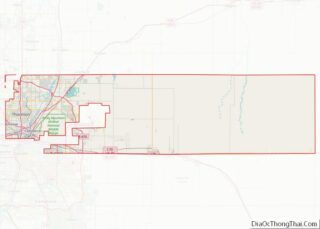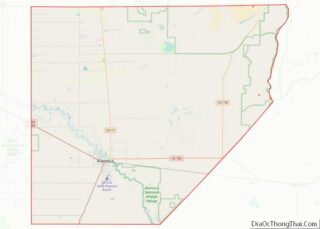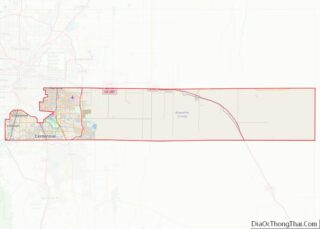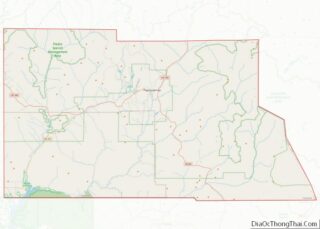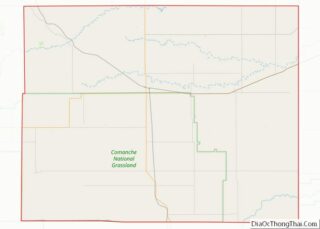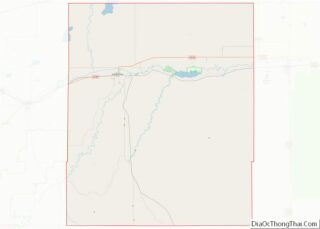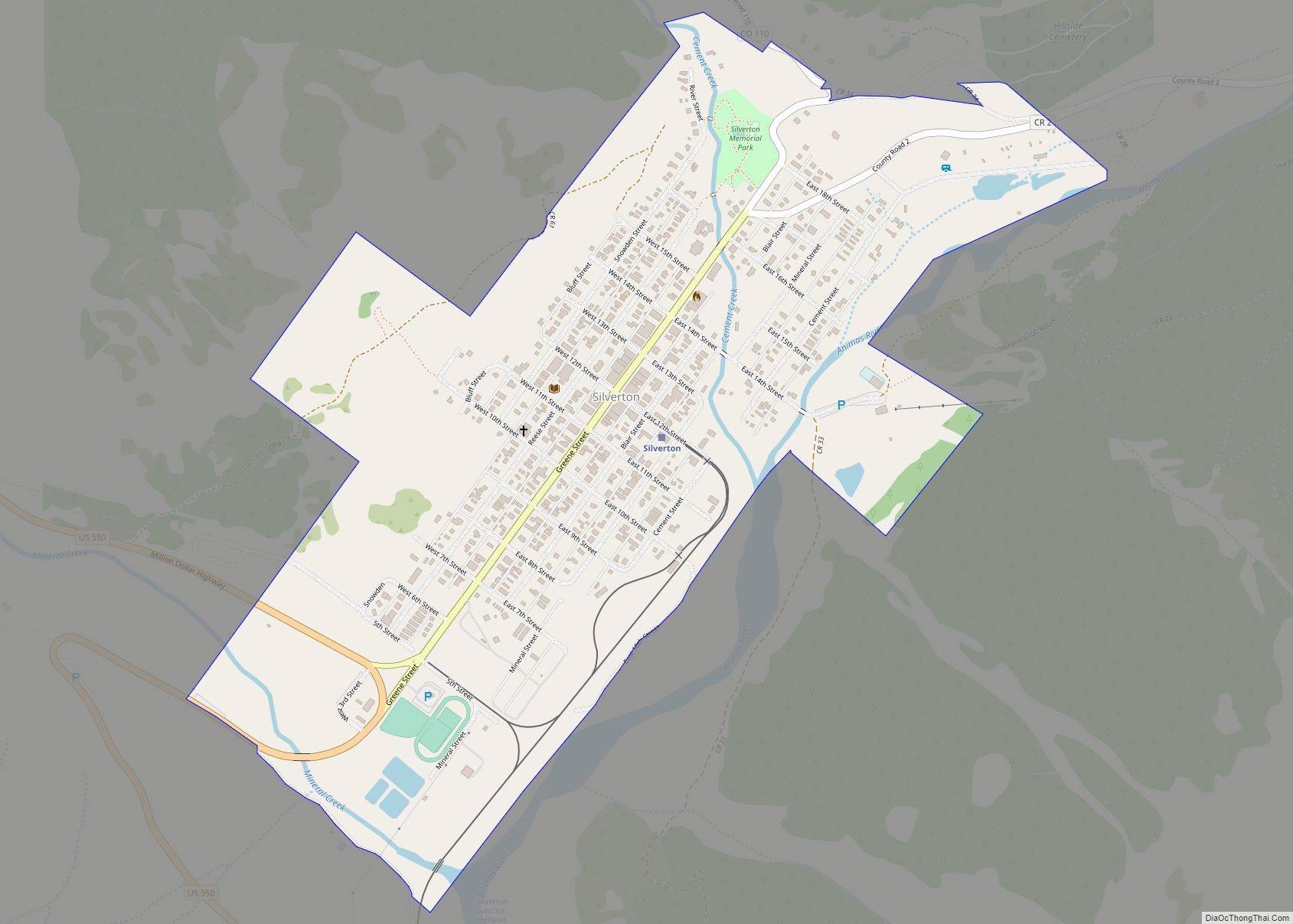San Juan County is a county located in the U.S. state of Colorado. As of the 2020 census, the population was 705, making it the least populous county in Colorado. The county seat and the only incorporated municipality in the county is Silverton. The county name is the Spanish language name for “Saint John”, the name Spanish explorers gave to a river and the mountain range in the area. With a mean elevation of 11,240 feet (3,430 meters), San Juan County is the highest county in the United States.
| Name: | San Juan County |
|---|---|
| FIPS code: | 08-111 |
| State: | Colorado |
| Founded: | January 31, 1876 |
| Named for: | Saint John |
| Seat: | Silverton |
| Largest town: | Silverton |
| Total Area: | 388 sq mi (1,000 km²) |
| Land Area: | 387 sq mi (1,000 km²) |
| Total Population: | 733 |
| Population Density: | 1.8/sq mi (0.7/km²) |
| Time zone: | UTC−7 (Mountain) |
| Summer Time Zone (DST): | UTC−6 (MDT) |
| Website: | sanjuancounty.colorado.gov |
San Juan County location map. Where is San Juan County?
History
Long before European settlement, the area was regularly explored by the Anasazi, and later the Utes, who hunted and lived in the San Juans during the summer. There is also speculation that Spanish explorers and fur traders ventured into the area in the 1600s and 1700s.
Permanent settlement in the area surrounding present-day San Juan County began in 1860, near the end of the Colorado Gold Rush. These first settlers were a group of prospectors lead by Charles Baker, who made their way into the San Juan Mountains searching for gold.
After the Brunot Agreement with the Utes in 1873, which exchanged four million acres (6,200 sq mi; 16,000 km) for the Southern Ute Indian Reservation and $25,000 per year, several mining camps were constructed. These would later become the communities of Howardsville, Eureka, and Silverton. San Juan County was formed on January 31, 1876, from part of La Plata County.
The region boomed after George Howard and R. J. McNutt discovered the Sunnyside silver vein along Hurricane Peak, outside the mining camp of Eureka. Gold was then discovered in 1882, which helped the county weather the Panic of 1893 far better than other mining communities, such as Aspen or Creede. The Sunnyside Mine would become one of Colorado’s longest running and most productive mines.
Mining operators in the San Juan mountain area of Colorado formed the San Juan District Mining Association (SJDMA) in 1903, as a direct result of a Western Federation of Miners proposal to the Telluride Mining Association for the eight-hour day, which had been approved in a referendum by 72 percent of Colorado voters. The new association consolidated the power of thirty-six mining properties in San Miguel, Ouray, and San Juan Counties. The SJDMA refused to consider any reduction in hours or increase in wages, helping to provoke a bitter strike.
The Sunnyside mine was shut down after the 1929 stock market crash, but was acquired by Standard Metals Corp. in 1959, and reopened, finding gold in 1973 with the Little Mary vein. The county’s economy was dealt a devastating blow in 1992 when the mine and the corresponding Shenandoah-Dives mill, the last operating in the region, permanently closed. The closure meant the end of jobs for over one third of the county’s workforce.
San Juan County Road Map
Geography
According to the U.S. Census Bureau, the county has a total area of 388 square miles (1,000 km), of which 387 square miles (1,000 km) is land and 0.8 square miles (2.1 km) (0.2%) is water. It is the fifth-smallest county in Colorado by area. The county is located in the heart of the San Juan Mountains of Colorado. Though it has the highest mean elevation of any county in the United States, at 11,240 feet (3,430 m), none of Colorado’s 53 fourteeners (mountains at least 14,000 feet in elevation) are in San Juan County.
Adjacent counties
- Ouray County – north
- Hinsdale County – east
- La Plata County – south
- Montezuma County – southwest
- Dolores County – west
- San Miguel County – northwest
Major Highways
- U.S. Highway 550
National protected areas
- Durango-Silverton Narrow-Gauge Railroad National Historic District
- Rio Grande National Forest
- San Juan National Forest
- Shenandoah-Dives (Mayflower) Mill
- Silverton National Historic District
- Uncompahgre National Forest
- Weminuche Wilderness
Trails and byways
- Alpine Loop National Back Country Byway
- Colorado Trail
- Continental Divide National Scenic Trail
- San Juan Skyway National Scenic Byway
